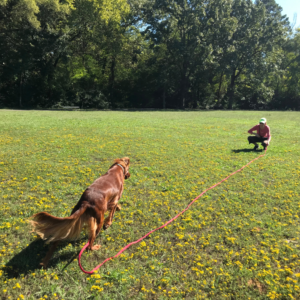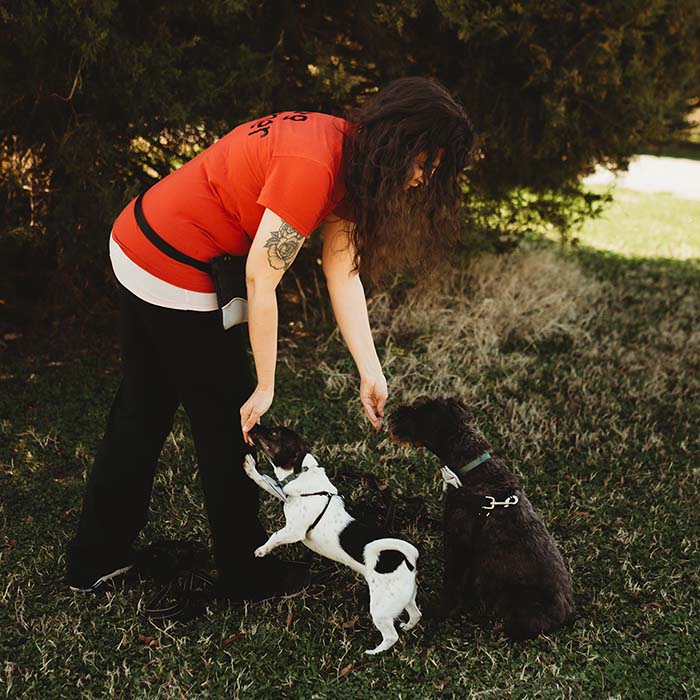COVID-19 and Our Pets
Call your veterinarian to find out what should be handled now and what can wait
Things are rapidly changing these days.
Just listening to the podcast episode? That first opening part is Jeeves interrupting me, which you can see on the YouTube video!
Information can switch up even a day or so later, and that’s what I’ve found after only interviewing Dr. Marlow Ball of SoMa Animal Clinic on Monday. It’s Thursday, and there are more changes, new initiatives, and more. Be sure to check with your veterinarian to see what protocols are in place and what your pet needs if you do need to be quarantined for two to four weeks.
But veterinarians are a part of an essential field, so it is unlikely that yours will close. “That is dependent on the health of the staff,” Dr. Ball explained. “I’m a very small practice. It’s just me. So if I am exposed or become sick, I will close because I am the only veterinarian. But I will do my best to try to have a way we can call meds into other existing hospitals so our clients can continue to get care. So in other words, I don’t expect that every vet clinic is going to close for a month.”
Dr. Ball, like most veterinarians, are following the guidelines of the American Veterinary Medical Association (AVMA), the professional group that leads the veterinary profession. “We want to try to conserve PPE, which is personal protection equipment, for humans,” Dr. Ball said. “We need to save gloves. We need to save masks. So the AVMA has recommended rescheduling all elective surgeries. We are not performing spay and neuters. We are not performing dentals. If there is an emergency surgery, like a foreign body or a pyometra, which is an infected uterus, something that cannot wait, that is life-threatening, then we will certainly provide those surgeries.”
Dr. Ball recommended gathering essential supplies if quarantine or lockdown is required: two to four weeks of food, medications, flea and tick preventatives, supplies, water, and any other basic needs. “You may need to stay in your home two weeks, so you need to have supplies that will last you and your pet through that period of that time,” she said. “Or you need to have a list of contacts of people who may be able to pick your pet up if they get sick and bring them in.”
And especially in central Arkansas, it’s been a mild winter. That means it will be a difficult season for fleas and ticks. “Veterinarians provide a very important job and there are a lot of diseases that can be spread from fleas and ticks,” Dr. Ball said. “Making sure we can protect our clients and our patients from things that are preventable, like fleas and ticks, is going to be very important. It’s going to be a really bad year for fleas and ticks because we didn’t have a winter to freeze off the eggs. Make sure that your pets are on a good flea and tick preventative and make sure you’ve got that ready at home, at least a month’s worth of everything.”
That includes heartworm preventative as well. In some northern states, pet owners will stop heartworm preventative in the winter, since the seasons can kill off mosquitoes. But in the south, the winter cycle isn’t long enough. “It’s recommended that we keep our pets on heartworm preventative year-round but you’re going to be seeing mosquitoes any day now if you’re not seeing them already,” Dr. Ball said. “Make sure you’re keeping your pet on heartworm prevention because we see a lot of heartworm disease here in central Arkansas.”
While pets should be tested yearly, the pandemic means that certain nonemergency services may be on hold. It’s worth a talk with your vet. “I’m trying to reduce barriers to having my patients taken care of, so if I have seen a client and they are only two months overdue, let’s give them two or three months of heartworm prevention and let’s get them on a heartworm test in April or May,” Dr. Ball said. “I don’t think being a month late on a heartworm test is a reason to let prevention lapse. That’s a case by case situation and that’s a decision I make based on medical records and the history that I have with my patient. I think veterinarians are really trying to support our owners and minimize your need to have to get out right now.”
The same is true for vaccinations. “I think we’ve got to look at the overall picture,” Dr. Ball said. “I want to try to protect our pets and I want to protect human health and safety. For example, I have treated leptospirosis, that’s a bacteria that causes kidney failure in people and pets. I have treated dogs with that in central Arkansas so that is a vaccine that, if their lifestyle deems it necessary, is a very important vaccine. But at the moment, I’m trying to find ways to postpone vaccines where we can for at least four to six weeks. But let’s look at the overall picture and make a decision that fits. If we can wait, let’s wait. If we can’t, then let’s try to get it scheduled and we are happy to walk you through the precautions that we are taking to make sure that our staff and that our clients are safe if pets do need to be seen right now.”
They’ve taken extra precautions at the clinic as well. “We are trying to minimize direct contact with people right now,” she explained. “We are only having one client in at a time and we are giving ourselves five to ten minutes in between clients to disinfect so we can try to minimize the amount of spread in the clinic. So if you are exposed to COVID, you would want to have someone who can pick your pet up and bring them to the vet. And also let your vet staff know what’s going on so we can protect ourselves and our staff.”
While it is important to take some precautions, such as perhaps not allowing your dog to get some attention from the neighborhood children at the moment, there’s no indication that dogs can infect humans with COVID-19. “There was a very interesting study that was done by IDEXX, which is a small animal laboratory in America,” Dr. Ball explained. “They tested hundreds of dogs for COVID-19. These were not random dogs. They tested dogs that came from families where someone close in the family had COVID-19. They tested hundreds of dogs and did not find a single case where COVID-19 was picked up in any of these animals. There are outlying cases, but it’s very uncommon and the majority of what we know, and there’s still a lot that we don’t know, and we’re learning more every day, as of right now there’s no indication that dogs can spread it to humans. I’ve heard a few stories where a dog was around a human and tested positive but had no symptoms. So in other words, there’s no evidence that you can get COVID-19 from your dog. If you are sick, you may want to take some precautions and not be in close contact with your pet for the period of time that you are sick.”
Some veterinarians are concerned that dogs may be able to serve as a fomite, which is an inanimate object that can spread a virus or bacteria through contact, but there’s nothing concrete yet on whether this is possible. “There’s just a lot that we don’t know,” Dr. Ball said. “Is it possible that if a person sneezes on a dog, can it sit on their hair and stay for a period of time? That’s something that we don’t know a lot about and I’m trying to follow the updated guidelines for how we handle pets safely who may have been around someone who had COVID-19.”
Emergency clinics will also remain open. In central Arkansas, there are two:
Arkansas Veterinary Emergency & Specialists
11619 Pleasant Ridge Rd, Little Rock, AR 72212
(501) 224-3784
After Hour Animal Hospital
290 Smokey Ln, North Little Rock, AR 72117
(501) 955-0911
While it’s important to not panic, it’s also a good idea to prepare if possible. “They’re part of the family and I think as we are preparing for food and water and medical supplies and needs for our human family, we just need to be doing the same preparations for our pets,” Dr. Ball said. “We are all in this together. We all will make through this together. We need to work together to take care of each other and to take care of our pets and to take care of the people who can’t get out. Just use common sense and science to make decisions about what actions you should be taking. I want to give everybody a hug from a safe distance. It will be better on the other side.”
Telltail Dog Training offers group classes and private in-home lessons in the Little Rock area, along with training walks for current clients. Find Telltail’s podcast here, or find additional information on Instagram, Facebook and YouTube. Visit SoMa Animal Clinic’s website or Facebook for more information.



